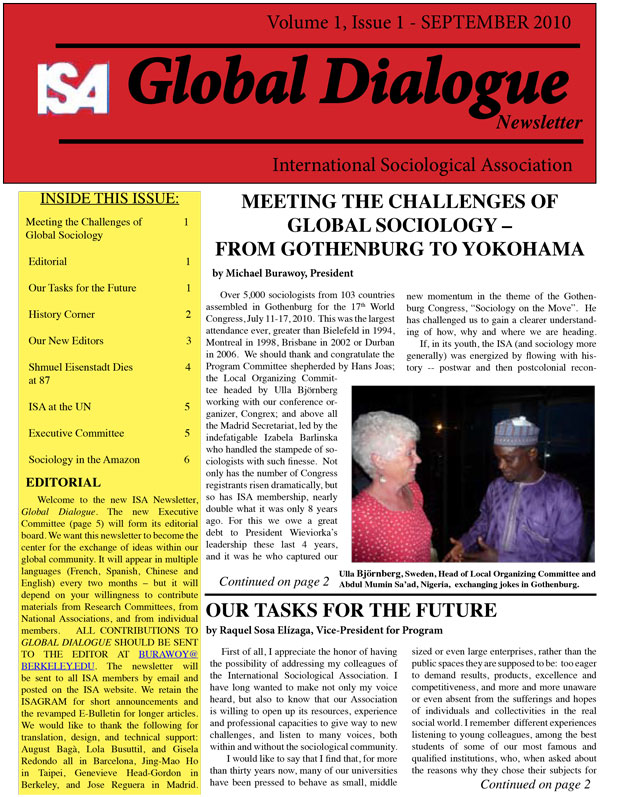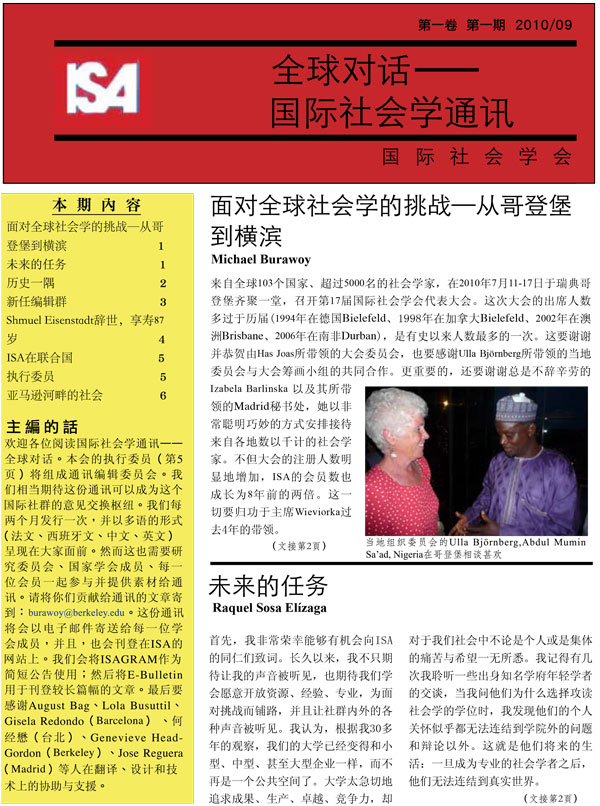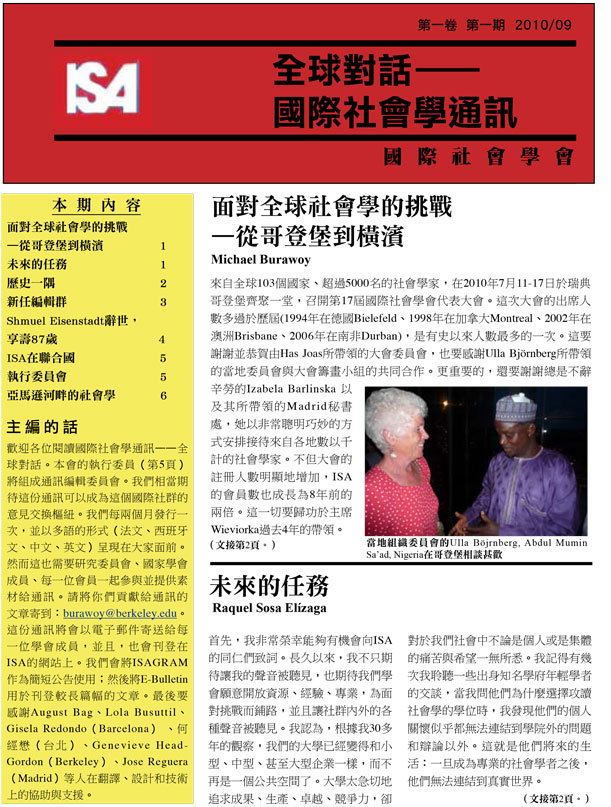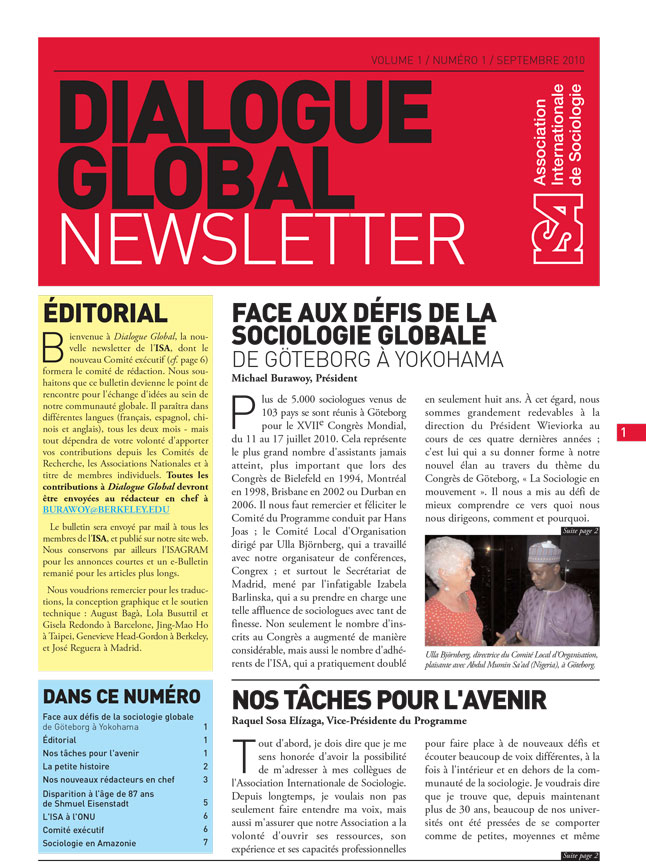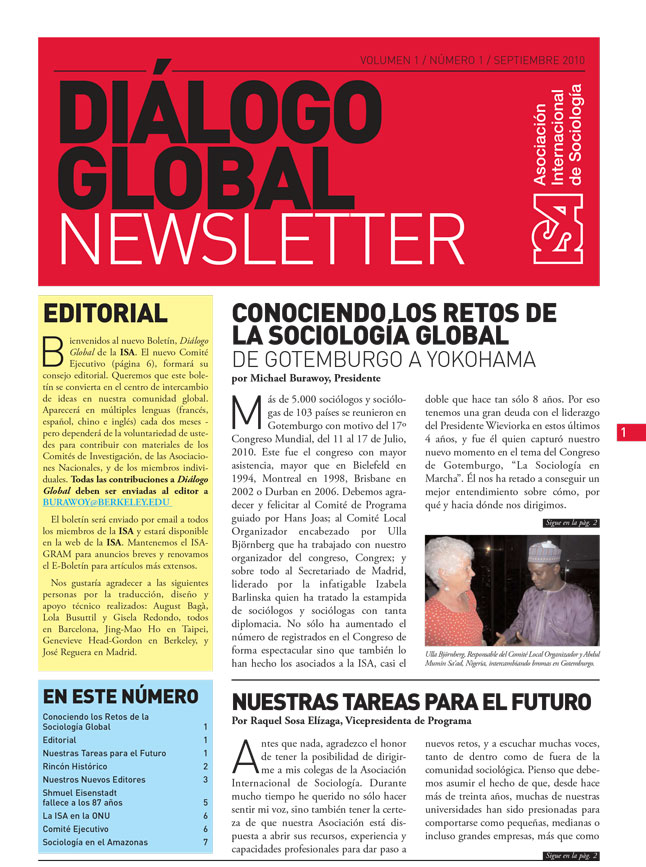Sociology in the Amazon
September 24, 2010
Between the 13-15 of September Brazilian Sociological Society (SBS) will hold its Second Northern Regional meeting in Belem, capital of Para state, at the Federal University of Para. The northern region of Brazil has a land area approximately half the size of contiguous USA, it includes the Brazilian Amazon and is very sparsely populated. Many of the university lecturers and students who will make it to the conference will travel for days, in some cases thousands of kilometers, mixing river and air travel. In spite of the logistic difficulties in the region, the meeting looks set to be a great success. Over 450 paper proposals have been submitted for presentation in 16 different research committees. There will be keynote speeches, round table discussions and a festival of films entitled "Views of Amazonia". The central theme of the meeting is "Amazons, social changes and perspectives for the 21st century". The reader will note that "Amazons" in written in the plural, this is a reference not only to the Brazilian Amazon, but also to the eight other countries which share the Amazon with Brazil. This is a huge and plural region, and demands that much knowledge be produced in a 'pan-Amazonian' perspective.
As the call for papers points out; "It is a function of the diversity of its social formation, and of its differences, be they ethnic, cultural, political or those that refer to identity formation itself...." that the results of research carried out over the last fifty years, whether in Brazil or in neighboring countries, permit one to talk of Amazons in the plural. "The proposal has, as its point of departure, the observation that there is no single sociological research paradigm that is capable of interpreting" the diverse situations and processes observed, we are indeed, when thinking about this region, confronted with the "inexorable epistemological diversity of the world" and the need to produce new dialogues in the social sciences where the Amazonian questions have traditionally been treated by anthropology and economics.
At the same time as the conference seeks to bring together Brazilian researchers, and to expose their often neglected perspectives nationally, it also seeks to bring in researchers from other Latin American countries. Trans-cultural issues, projects of continental integration as well as the spread of migration, crime and other phenomena, link local issues in different parts of the Amazon to wider regional and even global issues. The meeting is coordinated by Edna Castro, and we are sure it will be yet another demonstration of the liveliness of Brazilian sociology. For more information (in Portuguese) on the site: www.sbsnorte2010.ufpa.br and the blog: http://www.sbsnorte.blogspot.com/.
Tom Dwyer, Member of the ISA Executive Committee

